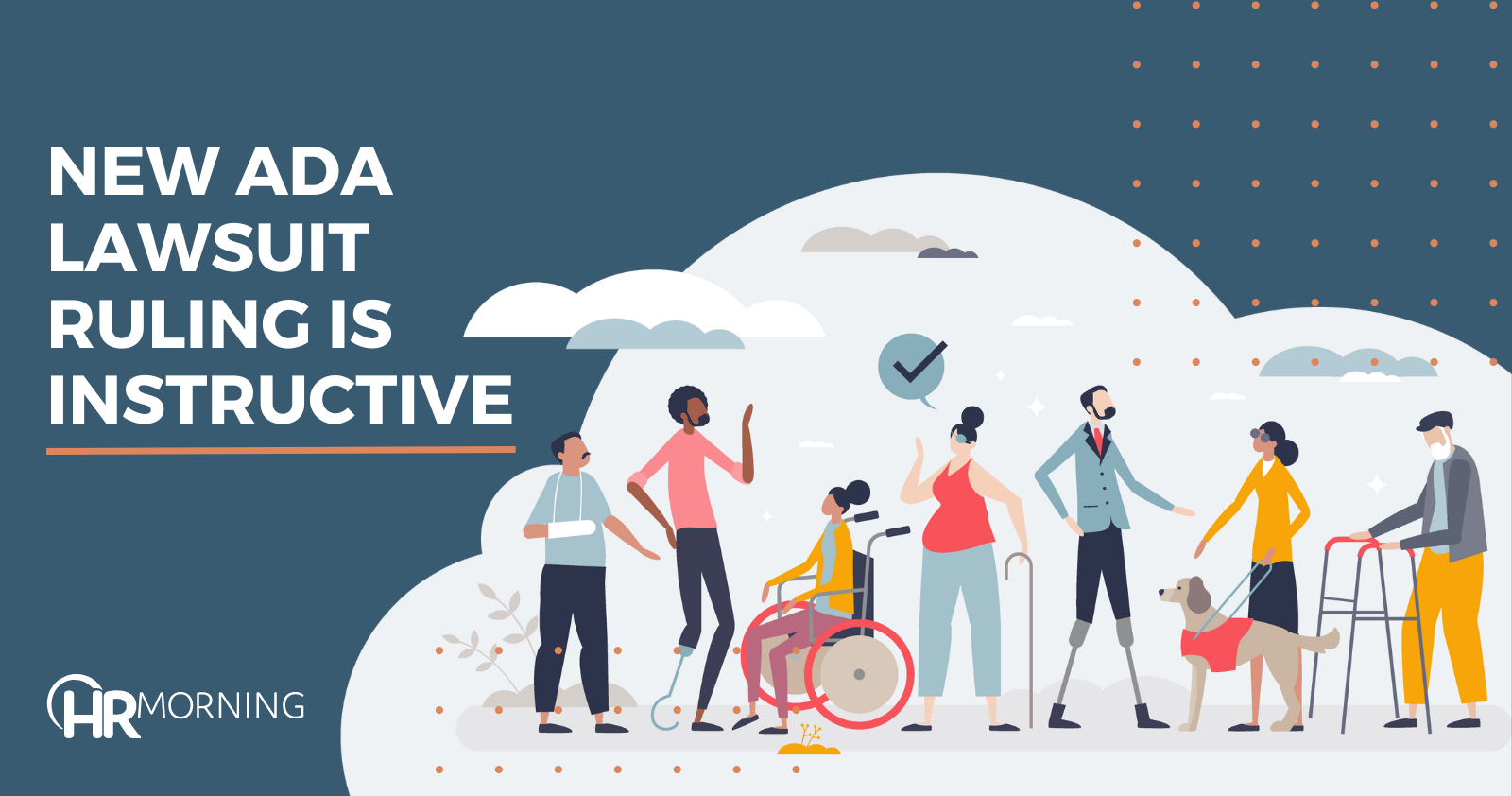One way to win an ADA lawsuit is to show that the applicant or employee is not able to perform the job’s essential functions.
To do this, employers have to know what it takes to show that a particular function is truly “essential” to the position at issue.
Sometimes, that line can get a little blurry. A recent case from North Carolina shows how employers can land on the winning side of it.
The case involved William Butler, who worked as a police officer for the Charlotte-Mecklenburg Police Department. Butler was diagnosed as having PTSD after a military deployment in Afghanistan.
When he was hired in 2013, Butler was assigned to work the third shift, which began at 7:45 p.m. and ended at 6:00 a.m.
PTSD and trouble sleeping
In 2018, Butler started having trouble sleeping. In May of 2019, he told his supervisors about his PTSD and asked for a transfer to the 5:45 a.m. to 2:00 p.m. shift as a disability-related job accommodation. More specifically, he said that the cumulative effects of working nights had exacerbated his disorder and that switching to the day shift would help.
Butler admitted in his formal request for accommodation that he was struggling to perform two job functions that the department identified in its written list of functions as essential. One required officers to be able to “handle complex and stressful situations,” while another specifically said they had to be able to work rotating shifts.
A psychologist concluded that Butler was not able to perform – or was “limited in performing” – both functions. After a second psychologist said Butler was not fit for duty, the department terminated his employment for unsatisfactory job performance – which was specifically defined to include the inability to perform essential job functions.
ADA lawsuit falls flat
Butler filed an ADA lawsuit, but he lost.
The court explained that to win, he had to show he could perform the job’s essential job functions, with or without accommodation. But the accommodation he sought – working the first shift – would eliminate an essential job requirement instead of enabling him to perform it, the court explained. And that is much more than the ADA requires when it comes to providing disability-related job accommodations.
The bottom line: Butler could not show an ADA violation because he was unable to perform the essential functions of an officer for the department.
The department’s written list of essential job functions was critical to the court’s ruling. These lists, which are often included in written job descriptions, can be the deciding factor in a job accommodation lawsuit.
Say it, do it
For that reason, it’s a good idea to list essential job functions in written job descriptions. At the same time, remember that simply listing a function as essential doesn’t make it so. What matters is what the employee is actually required to do.
Think about it: If a function is listed as essential but an employee never has to perform it, it’s obviously not an essential job function.
Another important point: The ADA says that a written job description is evidence of essential job functions, but only if it was prepared before advertising or interviewing applicants for the job.
The EEOC has provided detailed guidance that helps decide whether a particular function is really essential.
The agency says a particular function may be essential if:
- The position exists to perform it.
- Few employees can do it.
- It is highly specialized and the person was hired based on their special ability to perform it.
More factors
In addition to job descriptions, additional factors to consider in determining whether a function is essential include:
- The employer’s judgment.
- The amount of time spent performing the function.
- The terms of a collective bargaining agreement.
- The work experience of past incumbents in the job.
- The current work experience of incumbents in similar jobs.
Don’t be fooled into thinking that a function is not essential just because it is not performed regularly. That just is not true.
Rarely performed, but super important
While the amount of time spent performing a function is relevant, a function can be essential even if it is performed only rarely. In one case, for example, a detention center employee argued that the ability to restrain juveniles could not be considered an essential function of his job because he rarely was required to do it. The court rejected that argument, noting the serious consequences that could flow from an inability to perform the function.
Key takeaway: Accurately describing essential job functions in writing – and understanding how to otherwise show a job function is essential – can be critically important when defending an ADA claim relating to job accommodations.
The case is Butler v. City of Charlotte, No. 3:21-cv-00625-RJC-DCK, 2023 WL 5061986 (W.D.N.C. 8/8/23).


